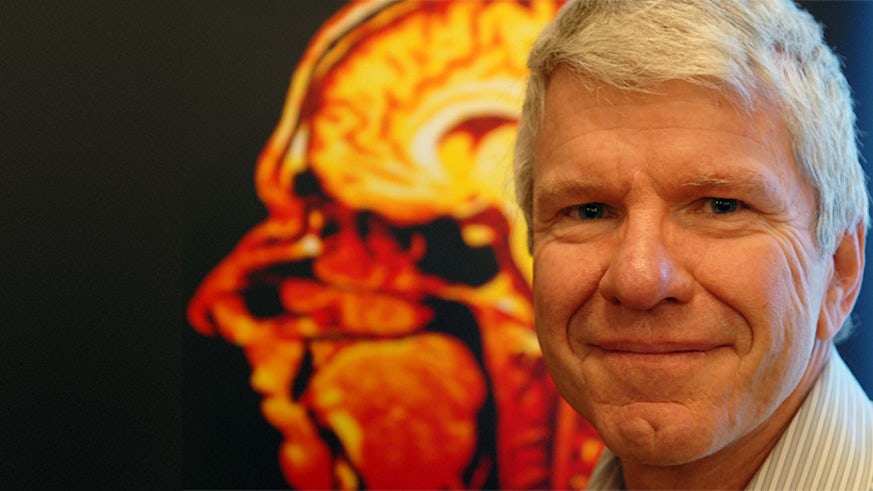Uniting to solve the mystery of mental health
17 May 2013

University neuroscientists, stem cell biologists, psychologists and psychiatrists are set to break down scientific barriers in a bid to solve the mystery of mental illness and help develop new treatments.
A team from the University's Neuroscience and Mental Health Research Institute have secured a £5.2M Wellcome Trust Strategic Award to help combine the latest findings in genetics, brain imaging, animal models and stem cells.
By developing a novel approach - combining human, animal and cellular experiments for the first time - the Cardiff team hope to gain new understanding on how specific genetic risk factors impact on the brain and behaviour.
"Recent findings in genetics have advanced our understanding of mental illness and major psychiatric disorders in important new ways," according to Professor Mike Owen, School of Medicine, who leads the research.
"We now know that that disorders like schizophrenia, attention deficit hyperactivity disorder share some of the same genetic risk factors.
"They also point to an important role in these disorders for abnormalities in synapses – the structures through which brain cells communicate with each other.
"The next step in understanding these disorders is to take the genetic findings and trace them into how the brain functions and influences behaviour by harnessing recent advances in neurosciences and stem cell research," he added.
Cardiff has assembled a team of scientists with complementary expertise in psychiatry and neuroscience from across the Schools of Medicine, Biosciences and Psychology.
Professor Jeremy Hall, School of Medicine, a recently appointed Professor of Psychiatry and Neuroscience said: "We now have a wonderful opportunity to take forward our understanding and treatment of disabling disorders such as schizophrenia and autism. We believe an integrated approach is essential to understanding these complex disorders.
"We will therefore investigate the effects of genetic risk for mental illness in cells, model systems and patients. In our model systems we aim to work out how genetic factors change the way nerve cells communicate with each other, and the impact this has on brain circuits. This will provide us with a platform for designing much better treatments for these conditions."
Professor Lawrence Wilkinson, School of Psychology, whose research is focused on how genetic and epigenetic mechanisms influence the way the brain functions, said: "Understanding what goes wrong in brain disorders, such as schizophrenia, is a big challenge needing a big response from the best neuroscientists in the UK.
"What excites me about this new approach is the way it is going to allow us to examine the biology of these complex brain disorders at multiple levels, starting with genetic changes in people that make them more vulnerable to disease, and then getting to grips - using animal models and brain cells grown in the test-tube - with exactly how these genetic changes lead to a brain not working properly.
"We will then translate these findings back to patients so we can clear the fog that surrounds our current understanding of mental disorders and find better ways of fixing them."
Professor Adrian Harwood, School of Biosciences, who leads research into the emerging field of cellular pharmacology, which examines the interaction of psychotropic drugs in cells added: "Researchers are desperate for clinically relevant cell systems to study disease mechanisms and develop new drug therapies.
"This offers an unprecedented opportunity to close this gap and investigate this major human condition at the cell and molecular level."
By working across and integrating these different research areas, the team hope it will offer new understanding and eventually lead to new treatments for psychiatric disorders.
Dr John Williams, Head of Neuroscience and Mental Health at the Wellcome Trust, said: "Although mental health disorders affect as many as one in four people, we've made relatively little progress in our understanding of these diseases and how to treat them in several decades.
"This project will help us to start to really get to grips with the genetic and biological problems underlying the conditions."